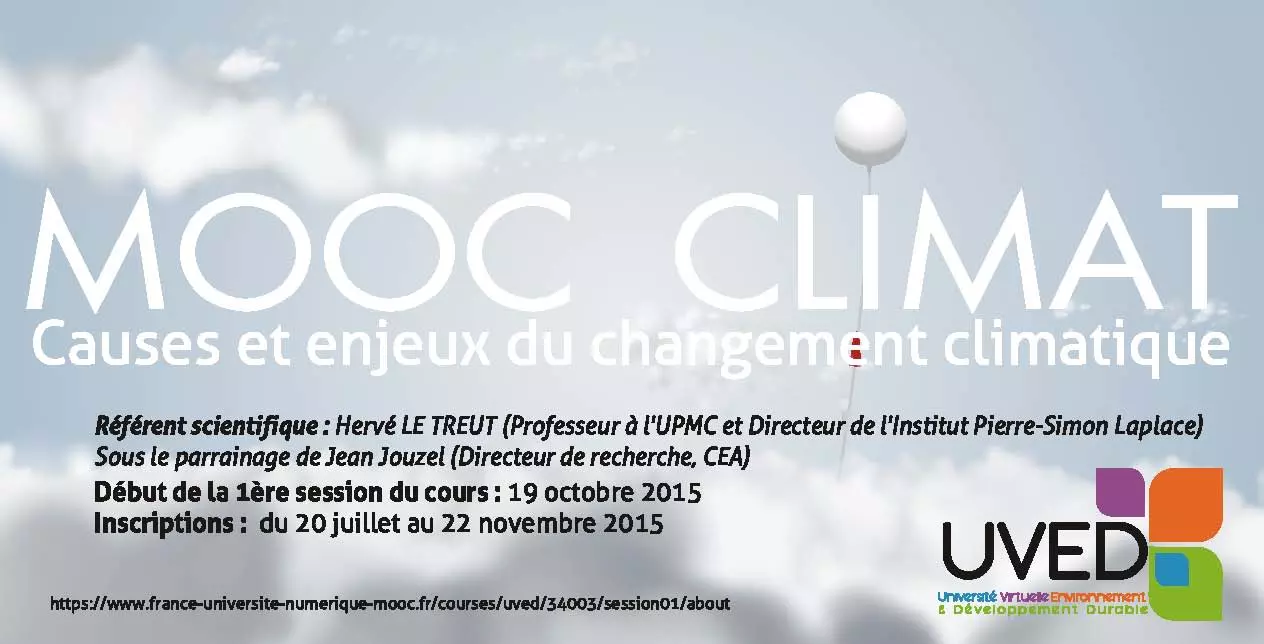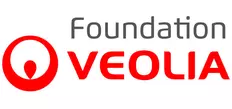This online course, accessible for free via la plate-forme France Université Numérique (FUN), will run from October 19 to November 30, 2015. Participants can register up until November 23 to gain access to videos, quizzes and an interactive forum providing a general view of the issues linked to climate change and giving them the information they need to stimulate their own personal reflection on the many controversies surrounding this topic. The videos were produced in French but have also been translated into English. Hervé Le Treut, professor at the Université Pierre et Marie Curie and the Ecole Polytechnique and director of the Institut Pierre-Simon Laplace, provides scientific leadership for the course, which is sponsored by Jean Jouzel (CEA). The MOOC was awarded the COP21 label by the certification committee chaired by the Ministry of Ecology, Sustainable Development and Energy. To discover a detailed description of the programs and register for the course: c’est ici

The UVED MOOCs, how does it work?
Throughout the six weeks of the course, an array of educational content, in the form of videos, is presented on line, accompanied by other activities that can also be carried out on line, such as quizzes, discussions or even homework assessed by peers. A forum enables exchanges with the community of learners and a certificate can be awarded depending on regularity of attendance and the results obtained. The workload is estimated at two to three hours a week.

